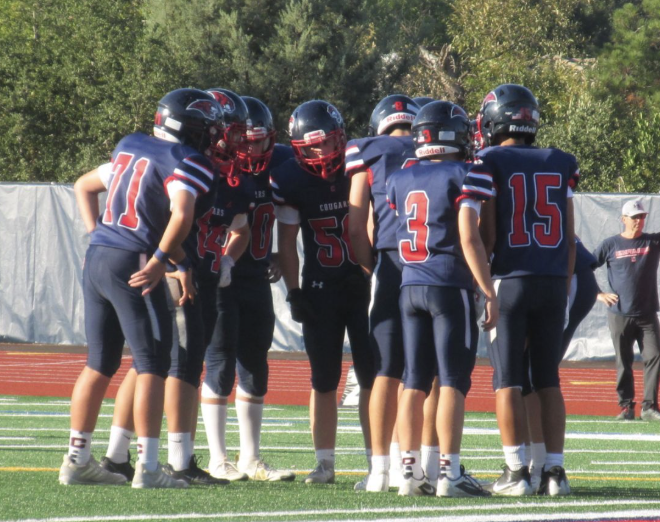Full day after full day: rushing from Math to English to science then an elective, all in the name of learning. Yet it seems that in our elite, over-achieving Lamorinda community, learning because of interest and passion is being phased out by a survivalist instinct to grade grub.
A resume, grade-oriented mindset may help individuals stay organized and productive but it can also be detrimental for in-depth learning. US history teacher Lisa Herzig has been teaching for over 20 years and has been at Campo for 16 of those years. She has noticed, “an increasing amount of disengagement from learning for the sake of learning. It’s more rare today for kids to be into the subject…or trying to find out what you don’t understand and make it better.” Herzig thinks, “some of it is tied up with our egos and fears of being wrong and/or not wanting to be outside of where we feel comfortable.”
As Herzig says, students sometimes enter a classroom expecting to know everything, to somehow know all the new information they haven’t learned. When these irrational expectations aren’t met students can become disengaged in class. However “[students are] going to be uncomfortable, everyone’s going to be uncomfortable. [But] we’ll figure it out with the right time and practice,” Herzig said.
Senior Meeran Gill also thinks students prioritize grades over learning for understanding. She has observed, “students don’t feel as motivated to try as hard or study as hard because they don’t think they’ll do as good as a high achieving student or somebody who likes to brag about their grades.”
Gill used to attend Bay Farm middle school in Alameda and knew individuals who were only taking a couple APs. She has noticed the stark difference in academic cultures between that community and Campo. A community, a school, an individual can function and function well without giving into Campo’s obsessions with over-achieving. We need to set boundaries for ourselves between understanding something’s importance, like attending a good college, and becoming consumed by it.
Many students are striving to get accepted by a “good” or selective college. Gill believes it’s important to work hard, be ambitious, and get into a competitive college because, “the name means something, going to DVC is different then going to UCLA.” However, she was taught regardless of what school you attend, “college is college. Obviously, try your best to get into the schools you want…but at the end of the day it matters what you put into it.”
Unfortunately, instead of working to cultivate the perspective Gill believes students should consider, many become riddled with anxiety and continue moving forward with a one track mind: fighting tooth and nail for that shiny A on a Canvas page.
In a 2022 study on correlation between academic pressures and mental health issues in college students published by the National Library of Medicine, researchers found that their results, “confirm[ed] what prior research has indicated: academic stress such as poor academic performance, a desire to succeed, and post-graduation plans can lead to anxiety.”
Liv Maestre is a junior who describes herself as a hard working, overachieving student who strives for the goals of straight A’s and fours or fives on AP exams. Maestre often worries about her grades and usually is at, “a solid 8 out of 10 worry level daily” she said. “I’m checking Canvas constantly, constantly thinking about classes and also taking APs [where] everybody is there for the A.”
Because of this, Maestre finds our Campo academic culture to be, “really sad. We’re privileged enough to be at a public school with such great education but [it’s more about] if you don’t overachieve then you are seen as less than at Campo. If you don’t get into that top college, you’re basically judged by your peers.” Conformity seems to be another vicious-cycle variable driving students to these unhealthy academic standards.
While over the years Campo has become more mental health focused – attempting to raise awareness and provide forms of support for those struggling – Maestre thinks, “there needs to be more focus.” Yes, we can and should be optimistic, taking reassurance, from the developments Campo has made in priority of mental health. However, understanding that the work continues can’t be lost. Whenever students can, it is important for them to remind each other that being mortal means mistakes but mistakes don’t mean mortality. We all see those students panicking in the halls after a stressful math test or in class essay. In those moments, instead of fueling the anxiety, students can help each other consider the bigger picture with grades, high school, and work ethic.
It may seem easier and feel safer to rely on grade based tunnel vision to succeed at school. However, as Maestre says, “it’s okay to get a B sometimes…it’s okay to not be completely perfect and it’s important to not compare yourself to others…It’s good to work hard and be focused on becoming a better person and having that mentality [instead].” She herself is, “trying to put that effort into changing [her] mindset especially in this kind of environment where [she’s] grown up.”
When the norm becomes toxic we need individuals willing to stand up and provide an example for those struggling, another choice that can be made, another perspective that can be built, different values to be held up. At Campo, many individuals are role models whether they realize it or not and when a few start changing the way they approach success and shortcomings, others will notice, trust, and follow.






